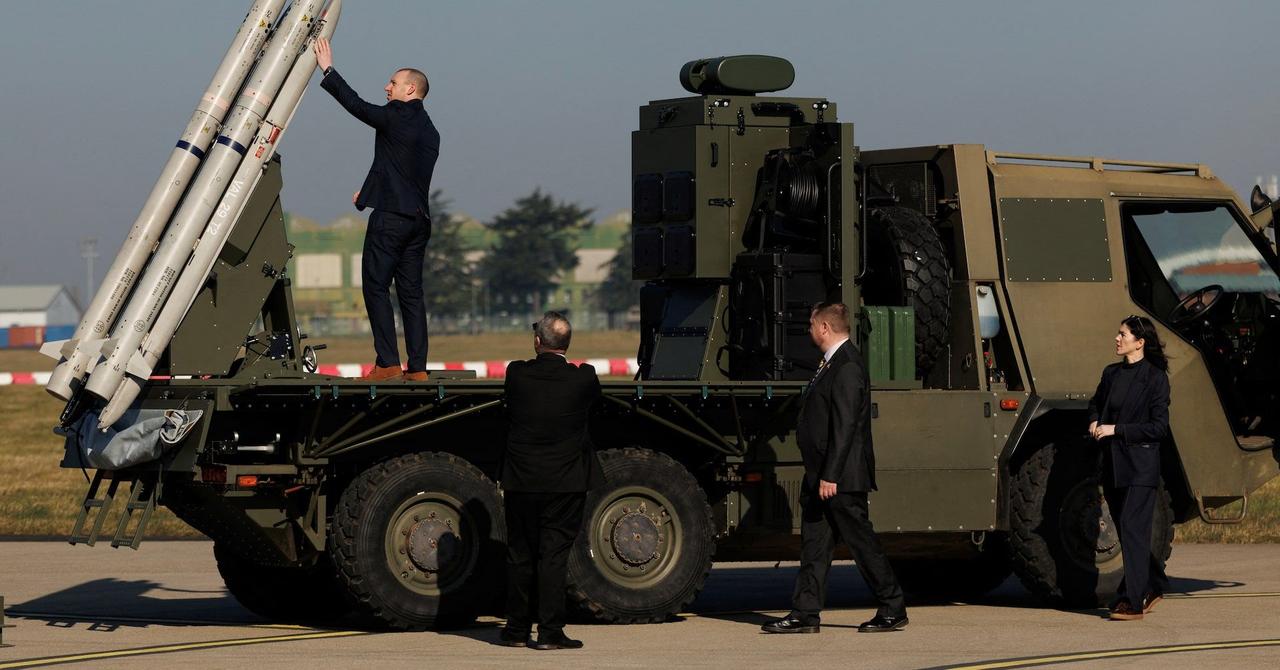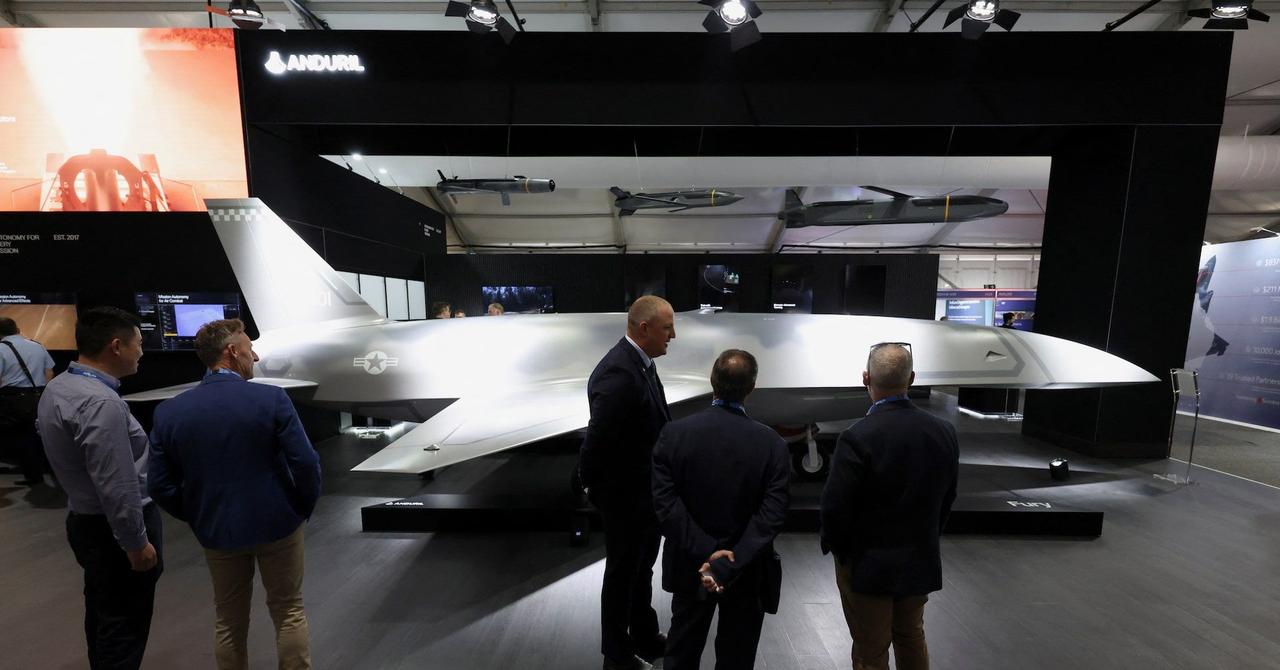New Zealand PM Calls for Defense Overhaul and Stronger Ties with Traditional Allies
2 Sources
2 Sources
[1]
New Zealand PM wants defence shakeup, focus on 'traditional' allies - Times of India
New Zealand will shakeup its defence forces and "reset" its foreign policy to align with traditional allies, the country's prime minister said Thursday. "The foundation of our foreign policy reset is our collaboration with longstanding partners," Luxon told the Lowy Institute, a foreign policy think tank in Sydney, Australia. New Zealand will shakeup its defence forces and "reset" its foreign policy to align with traditional allies, the country's prime minister said Thursday. In his first major foreign policy speech since taking office last year, premier Christopher Luxon said the country could no longer depend on the "splendid isolation" provided by its geography. "The foundation of our foreign policy reset is our collaboration with longstanding partners," Luxon told the Lowy Institute, a foreign policy think tank in Sydney, Australia. He said the country would look to strengthen links with traditional partners -- a notable shift after years of closer economic ties with China -- citing the United States, Britain, Nato, and Pacific neighbours as those "we know best and with whom we have deep reservoirs of trust". Luxon acknowledged that China remains New Zealand's biggest trading partner and "a country of undoubted influence", but said different values mean "there are issues on which we cannot and will not agree". In March, Wellington said a Chinese "state-sponsored group" was behind a 2021 malicious cyber attack that infiltrated sensitive government computer systems. China dismissed allegations of hacking and accused critical New Zealanders of being puppets of Washington. Sketching "tectonic shifts" in regional geopolitics, Luxon warned that New Zealand must be clear-eyed about the risk of regional conflict. "We can't achieve prosperity without security," he said. "New Zealand too must be a participant and a contributor -- not an interested bystander." To that end, a defence review is expected to focus on replacing and upgrading the country's military capabilities. New Zealand is also mulling participation in AUKUS efforts to develop advanced military technology such as artificial intelligence, undersea drones, and hypersonic missiles. AUKUS currently groups Australia, the United Kingdom and the United States. High-profile New Zealanders such as former prime minister Helen Clark have warned against irking China and an increasing dependence on the United States.
[2]
New Zealand PM Wants Defense Shakeup, Focus On 'Traditional' Allies
New Zealand will shakeup its defense forces and "reset" its foreign policy to align with traditional allies, the country's prime minister said Thursday. In his first major foreign policy speech since taking office last year, Premier Christopher Luxon said the country could no longer depend on the "splendid isolation" provided by its geography. "The foundation of our foreign policy reset is our collaboration with longstanding partners," Luxon told the Lowy Institute, a foreign policy think tank in Sydney, Australia. He said the country would look to strengthen links with traditional partners -- a notable shift after years of closer economic ties with China -- citing the United States, Britain, NATO, and Pacific neighbors as those "we know best and with whom we have deep reservoirs of trust". Luxon acknowledged that China remains New Zealand's biggest trading partner and "a country of undoubted influence", but said different values mean "there are issues on which we cannot and will not agree". In March, Wellington said a Chinese "state-sponsored group" was behind a 2021 malicious cyber attack that infiltrated sensitive government computer systems. China dismissed allegations of hacking and accused critical New Zealanders of being puppets of Washington. Sketching "tectonic shifts" in regional geopolitics, Luxon warned that New Zealand must be clear-eyed about the risk of regional conflict. "We can't achieve prosperity without security," he said. "New Zealand too must be a participant and a contributor -- not an interested bystander." To that end, a defense review is expected to focus on replacing and upgrading the country's military capabilities. New Zealand is also mulling participation in AUKUS efforts to develop advanced military technology such as artificial intelligence, undersea drones, and hypersonic missiles. AUKUS currently groups Australia, the United Kingdom, and the United States. High-profile New Zealanders such as former prime minister Helen Clark have warned against irking China and an increasing dependence on the United States.
Share
Share
Copy Link
New Zealand's Prime Minister Christopher Luxon announces plans for a major defense review, emphasizing the need to strengthen relationships with traditional allies amidst growing global tensions.

New Zealand's Defense Strategy Shift
New Zealand's Prime Minister Christopher Luxon has announced plans for a comprehensive review of the country's defense strategy, signaling a potential shift towards closer alignment with traditional allies. This move comes as global tensions rise and the geopolitical landscape becomes increasingly complex
1
.Focus on Traditional Alliances
Luxon emphasized the importance of strengthening relationships with New Zealand's "traditional partners," particularly the United States, Australia, Canada, and the United Kingdom. This stance marks a departure from the previous government's approach, which sought to balance relations between Western allies and China
2
.Geopolitical Concerns
The Prime Minister expressed concern over the current state of global affairs, citing issues such as the ongoing conflict in Ukraine and tensions in the Indo-Pacific region. These factors have contributed to what Luxon describes as the most challenging geopolitical environment since World War II
1
.Defense Review and Spending
As part of the proposed changes, Luxon plans to initiate a defense policy review within his first 100 days in office. This review aims to reassess New Zealand's defense capabilities and spending. The country currently allocates approximately 1.5% of its GDP to defense, which is lower than many of its allies
2
.Balancing Act with China
While emphasizing closer ties with traditional allies, Luxon also acknowledged the importance of maintaining a constructive relationship with China, New Zealand's largest trading partner. He stated that New Zealand would continue to engage with China on areas of mutual interest, such as trade, while also being prepared to express disagreement on certain issues
1
.Related Stories
International Cooperation
The Prime Minister highlighted the need for increased international cooperation, particularly in addressing global challenges such as climate change. He emphasized that New Zealand's foreign policy would prioritize the country's interests while also contributing to global stability and prosperity
2
.Implications for Regional Dynamics
This potential shift in New Zealand's defense strategy could have significant implications for the Indo-Pacific region. As tensions between China and Western powers continue to simmer, New Zealand's closer alignment with traditional allies may influence regional dynamics and security arrangements
1
.References
Summarized by
Navi
Related Stories
Recent Highlights
1
ByteDance's Seedance 2.0 AI video generator triggers copyright infringement battle with Hollywood
Policy and Regulation

2
Demis Hassabis predicts AGI in 5-8 years, sees new golden era transforming medicine and science
Technology

3
Nvidia and Meta forge massive chip deal as computing power demands reshape AI infrastructure
Technology








